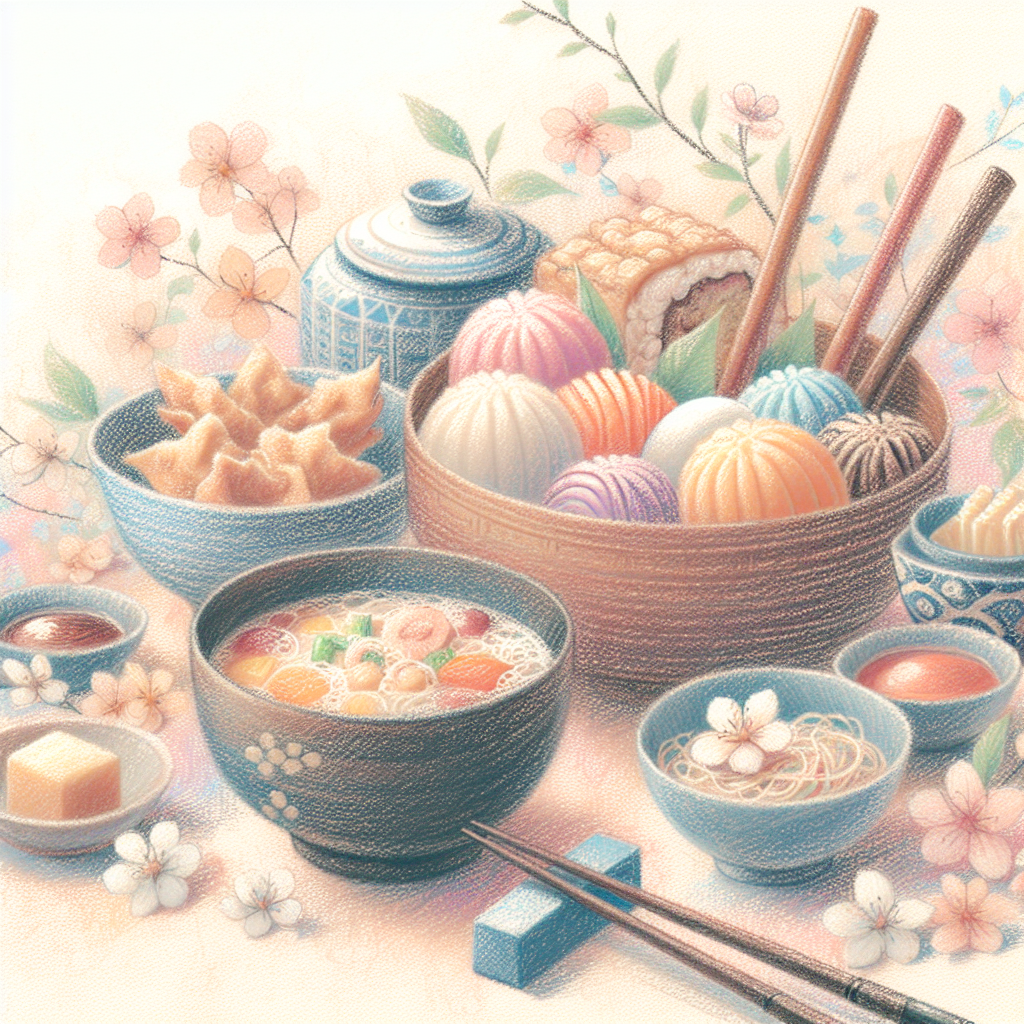Savoring the Sacred: The Intersection of Japanese Food Culture and Religious Beliefs
Japanese food culture is highly regarded worldwide for its diversity and depth, deeply intertwined with religious beliefs and a rich historical background. This article explores how Japanese cuisine intersects with religious rituals and belief systems, influencing daily meals in profound ways.
The Interweaving of Japanese Cuisine and Religious Rituals
Japanese food culture has been shaped by the influences of Shinto and Buddhism. In Shinto, food offerings to deities hold significant importance, and rice is particularly revered as a symbol of life. During rice planting and harvest seasons, visiting Inari shrines to express gratitude through rituals is a common practice. Such ceremonies reflect a gratitude expression through food, intertwining religious values into everyday life.
Buddhism also has a profound influence, particularly in shojin ryori (Buddhist vegetarian cuisine), which avoids meat and fish in favor of vegetables and grains. This practice embodies the Buddhist principle of valuing life and emphasizes the purification of body and mind through meals. Shojin ryori plays a vital role in monastic training, with cooking methods and presentation imbued with religious significance.
Nature and Seasonal Awareness: A Core of Food Culture
The Japanese food culture strongly reflects a philosophy of harmony with nature. Prioritizing the seasonal awareness of spring, summer, autumn, and winter, the incorporation of seasonal ingredients serves as a form of gratitude expression. Furthermore, special dishes and sweets are often prepared for specific events or festivals, frequently aligned with memorial practices and ritual prayers.
For instance, during Higan or Obon, special meals are prepared to honor deceased loved ones, reinforcing family bonds and expressing gratitude towards ancestors. Such traditional food customs transcend mere nutrition, taking on a spiritual significance.
Modern Developments in Food Culture: New Forms of Belief
In recent years, Japanese food culture has been influenced by globalization, leading to the incorporation of various cuisines. Among these trends, a growing movement towards choosing organic ingredients and vegan options reflects the values of contemporary individuals who honor religious teachings. Notably, environmentally conscious ingredient choices resonate with these beliefs, gaining traction among many.
The emergence of fusion dishes that incorporate traditional ingredients and reflect religious ideals signifies the continual evolution of food culture. Thus, Japanese culinary traditions flourish, adapting while preserving their essence.
Conclusion: Connections Through Food Culture
The relationship between Japanese food culture and religious beliefs is indeed fascinating. Meals serve not only as a means of nourishment but also as a ritual of gratitude and prayer, intimately woven into daily life. In this context, food culture builds a bridge between the sacred and the ordinary.
As we move forward, it remains essential to understand and respect the deep religious backgrounds embedded in Japanese food culture. To ensure this rich tradition is passed down to future generations, each of us must reflect on its significance, embracing a spirit of gratitude in our dining experiences. Viewing Japanese food culture from this perspective transforms dining into something far greater than mere sustenance.


